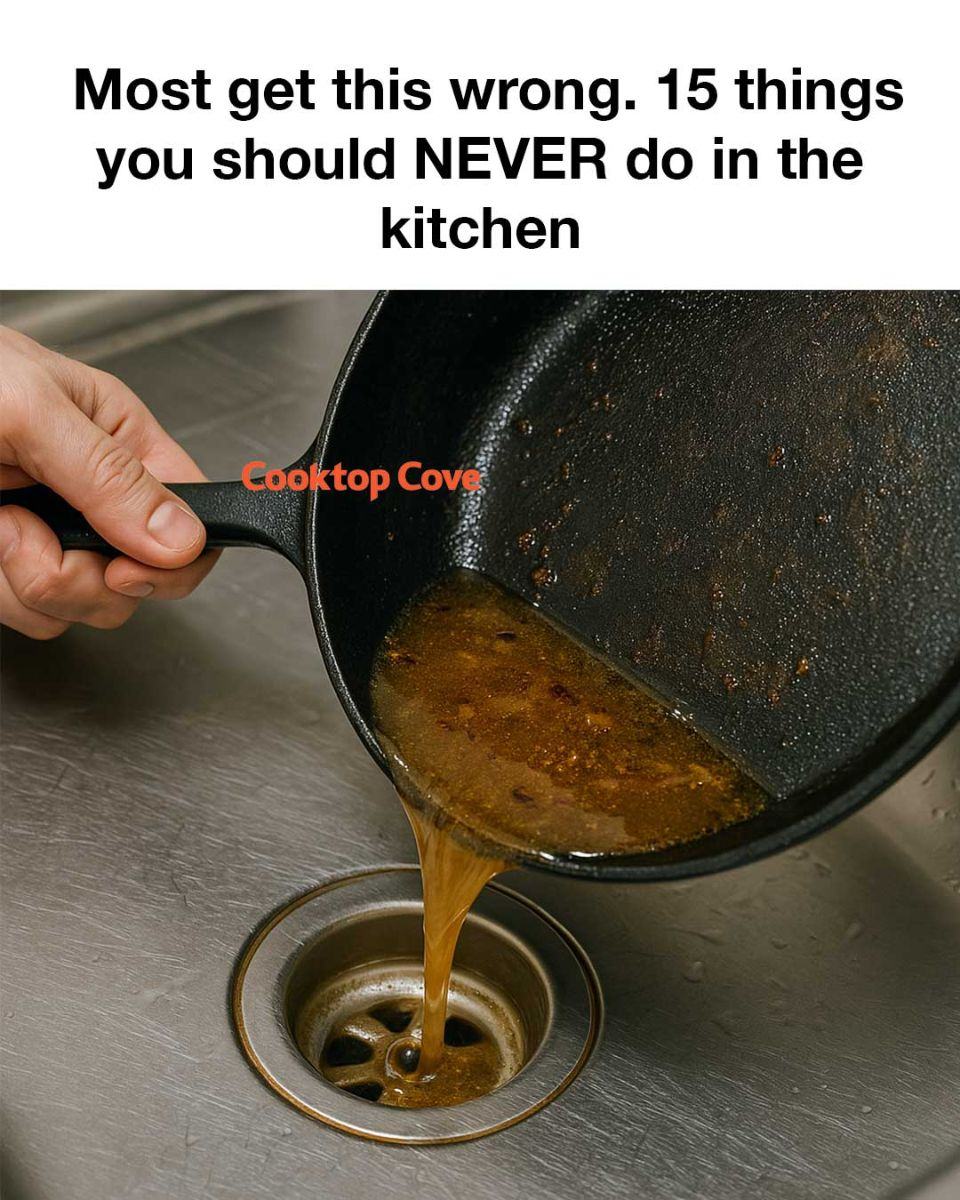ADVERTISEMENT
The kitchen is often considered the heart of the home, a place where meals are prepared and memories are made. However, it is also a space that can pose numerous hazards if not managed properly. From fire risks to foodborne illnesses, the kitchen requires a mindful approach to ensure safety and efficiency. This article outlines 15 critical things you should never do in the kitchen to maintain a safe and functional environment. By adhering to these guidelines, you can prevent accidents, preserve your kitchenware, and ensure that your culinary endeavors are both enjoyable and safe.
1. Never Pour Grease Down the Drain
Pouring grease down the drain can lead to severe plumbing issues. As grease cools, it solidifies and can cause blockages in your pipes, leading to costly repairs. Instead, allow grease to cool and solidify in a container, then dispose of it in the trash. This practice not only protects your plumbing but also helps maintain a more environmentally friendly kitchen.
2. Avoid Using Metal Utensils on Non-Stick Cookware
Using metal utensils on non-stick cookware can scratch and damage the coating, reducing its effectiveness and potentially releasing harmful chemicals into your food. Opt for wooden, silicone, or plastic utensils to preserve the integrity of your non-stick surfaces and extend the lifespan of your cookware.
3. Do Not Leave Cooking Food Unattended
Leaving food unattended while cooking is a leading cause of kitchen fires. Always stay in the kitchen when you are frying, grilling, or broiling food. If you must leave the room, turn off the stove or oven. This simple precaution can prevent accidents and ensure that your meals are cooked safely.
4. Never Use Wet Oven Mitts
Wet oven mitts can conduct heat more effectively than dry ones, leading to burns. Always ensure your oven mitts are dry before handling hot pots, pans, or baking dishes. This will help protect your hands from burns and make your cooking experience safer.
5. Avoid Cross-Contamination with Raw Meat
Cross-contamination can lead to foodborne illnesses. Always use separate cutting boards and utensils for raw meat and other foods. Wash your hands thoroughly after handling raw meat, and sanitize surfaces to prevent the spread of bacteria.
6. Do Not Use the Same Cutting Board for All Foods
Using the same cutting board for all foods increases the risk of cross-contamination. Designate specific cutting boards for raw meats, vegetables, and cooked foods. This practice helps maintain hygiene and prevents the transfer of harmful bacteria.
Continued on the next page
ADVERTISEMENT


